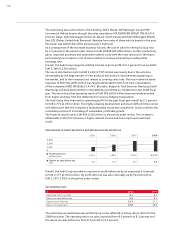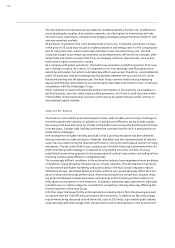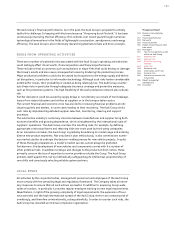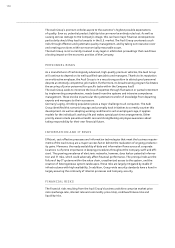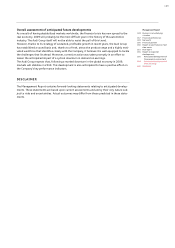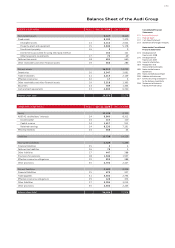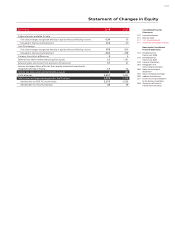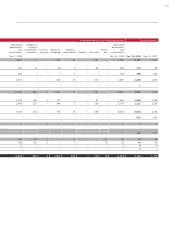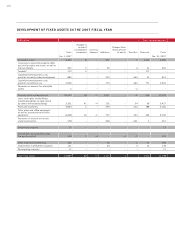Audi 2008 Annual Report Download - page 185
Download and view the complete annual report
Please find page 185 of the 2008 Audi annual report below. You can navigate through the pages in the report by either clicking on the pages listed below, or by using the keyword search tool below to find specific information within the annual report.
166
The rate of economic expansion will fall sharply in Central and Eastern Europe. The performance
of the Russian economy is likely to suffer in particular as a result of the sharp drop in prices for
energy sources. The same applies to the raw materials exporting countries of Latin America.
Falling demand from abroad is likely to have a stronger impact on Asia’s emerging markets in
2009, slowing down their economic growth visibly. For example, economic growth in China will
once again be slower than in the previous year despite the Chinese government’s economic
stimulus program. The Japanese economy is likely to slip deeper into recession in 2009.
The car industry
Due to the downturn in the global economy, the Audi Group anticipates that global demand for
automobiles will drop significantly in 2009. Virtually all auto markets worldwide will be affected
by the negative trend, including the previous growth hotspots China, Brazil and Russia.
In view of these economic prospects, the Audi Group expects the situation in the U.S. automo-
tive market to deteriorate even further in the current fiscal year. The overall market volume will
probably be down again on the low prior-year level, at considerably below 13 million units.
The Company likewise expects a further deterioration in the general market environment in
Germany. The economic downturn expected in 2009 will clearly mute demand for cars from
both private individuals and businesses. It currently remains to be seen to what extent the
economic stimulus packages passed by the German government and the “environmental bonus”
will positively impact demand for vehicles. This, incidentally, also applies to other countries in
which corresponding economic measures are planned.
Car markets in Western Europe (excluding Germany) are also expected to experience a sharp
downturn. The Audi Group expects the volume of new car registrations to tumble by a high
double-digit percentage rate.
The countries of Central and Eastern Europe will also be caught up in the downward trend in
2009. Russia, the most important market in the region, is also likely to fall short of the 2008
sales volume.
The growth of recent years is likely to come to an end in the Asia-Pacific region. The previously
high-growth Chinese passenger car market in particular will experience a fall in volume. In
Japan, the previous year’s negative trend will become even more acute. The Audi Group only
expects the Indian car market to match the previous year’s level in 2009.
ANTICIPATED DEVELOPMENT OF THE AUDI GROUP
2009 will likely be the most difficult year in the automotive industry’s history. Nor will the
Audi Group be able to resist the trend. Meanwhile, continuing volatility in the markets will make
it impossible to plan reliably on the basis of secure assumptions. Instead, the best way to tackle
developments promptly and comprehensively is to meet them with a flexible, forward-looking
approach.
Anticipated development of deliveries
In view of the slump in international car markets – occasionally by quite dramatic levels – and
with no current prospects of an improvement in demand, the Audi Group will likely not repeat
the record deliveries of the past fiscal year. However, thanks to its fresh, attractive product
range with powerful, efficient engines, the Audi core brand is confident that it will be able to
achieve success even under these difficult conditions and in the face of increasingly intense
competition. Further to the new vehicles successfully launched last year, a large number of
additional models and derivatives should help to capture new customer segments and give the
Audi brand’s appeal a long-term boost in 2009. The Company therefore expects that deliveries
of the Audi brand in major markets will outperform those markets as a whole, and that market
shares will be increased.




